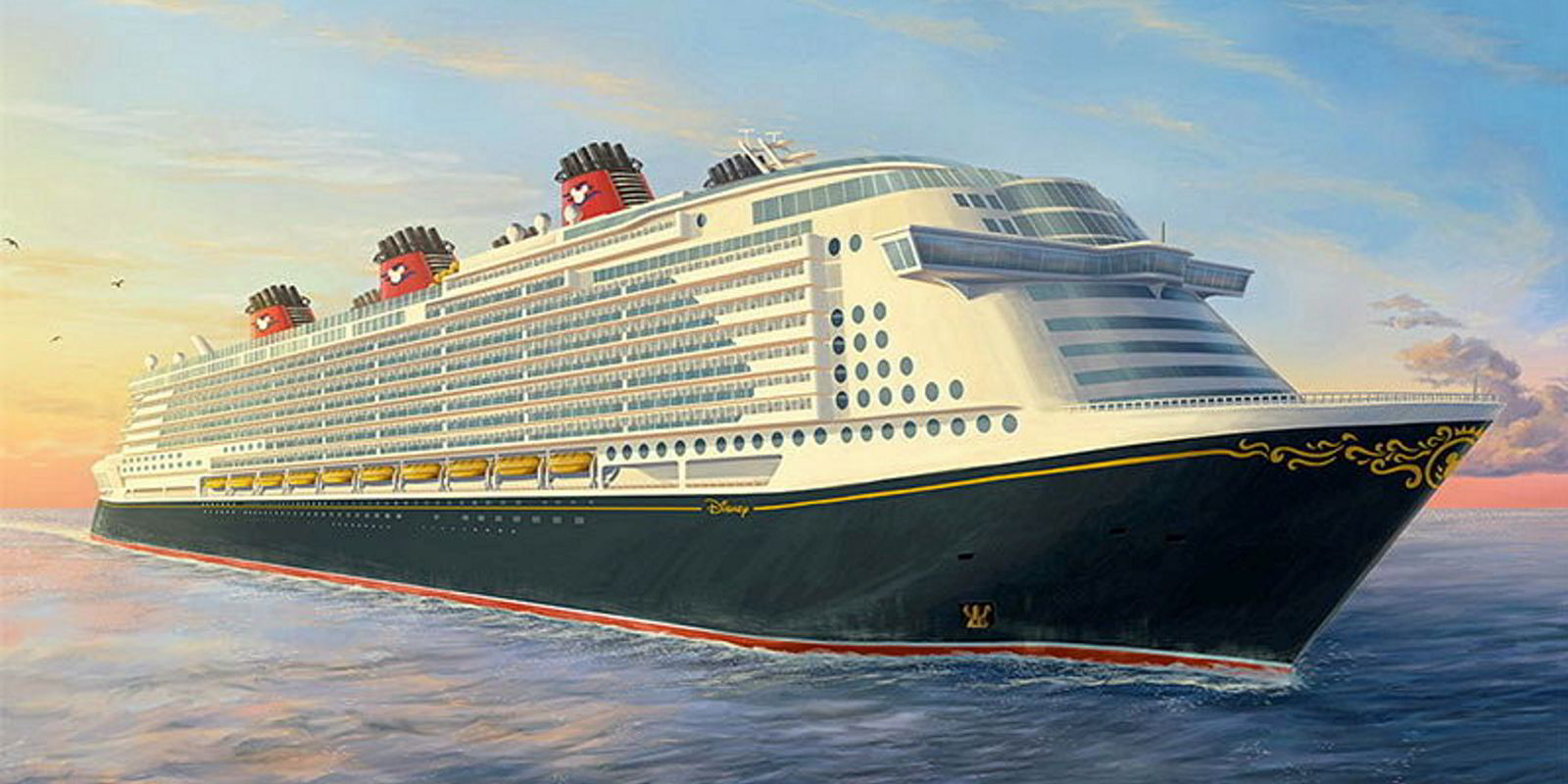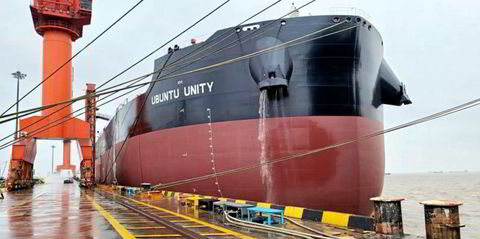While cruise executives were giddy about the return of demand growth for seagoing travel, there was another topic that was prominent in discussions at the sector’s industry’s biggest gathering of the year: carbon emissions.
TradeWinds visited the Seatrade Cruise Global conference in the Florida city of Fort Lauderdale, the first since trade group Cruise Lines International Association (CLIA) set a target for net zero carbon emissions by 2050.
But the event also came amid concerns that alternative fuel choices by cruise lines are the wrong path to tackle greenhouse gas emissions.

Pierfrancesco Vago, CLIA’s chairman and executive chairman at MSC Cruises, highlighted the emissions improvements that the association’s cruise lines are bringing this year through deliveries of new ships with greater efficiency, advanced designs and propulsion, and alternative fuels.
And he said technological innovations can deliver 70% of the carbon cuts that the industry is seeking to make.
But he really wanted to talk about the other 30% that he believes can be achieved with new fuels. He said governments need to help the industry gain access to supply of those fuels.
“We need new fuels, sustainable fuels. Our ships have in-built adaptability so they are ready for future fuels like synthetic and bio,” he said, referring to biofuels. “Cruise is definitely leading the way in responsible travel.”
Dynamic and responsible?
That was echoed by CLIA’s chief executive, Kelly Craighead, who said cruise is a dynamic and responsible sector that is showing leadership in many ways.
“Chief among these is our commitment to emission reduction,” she said.
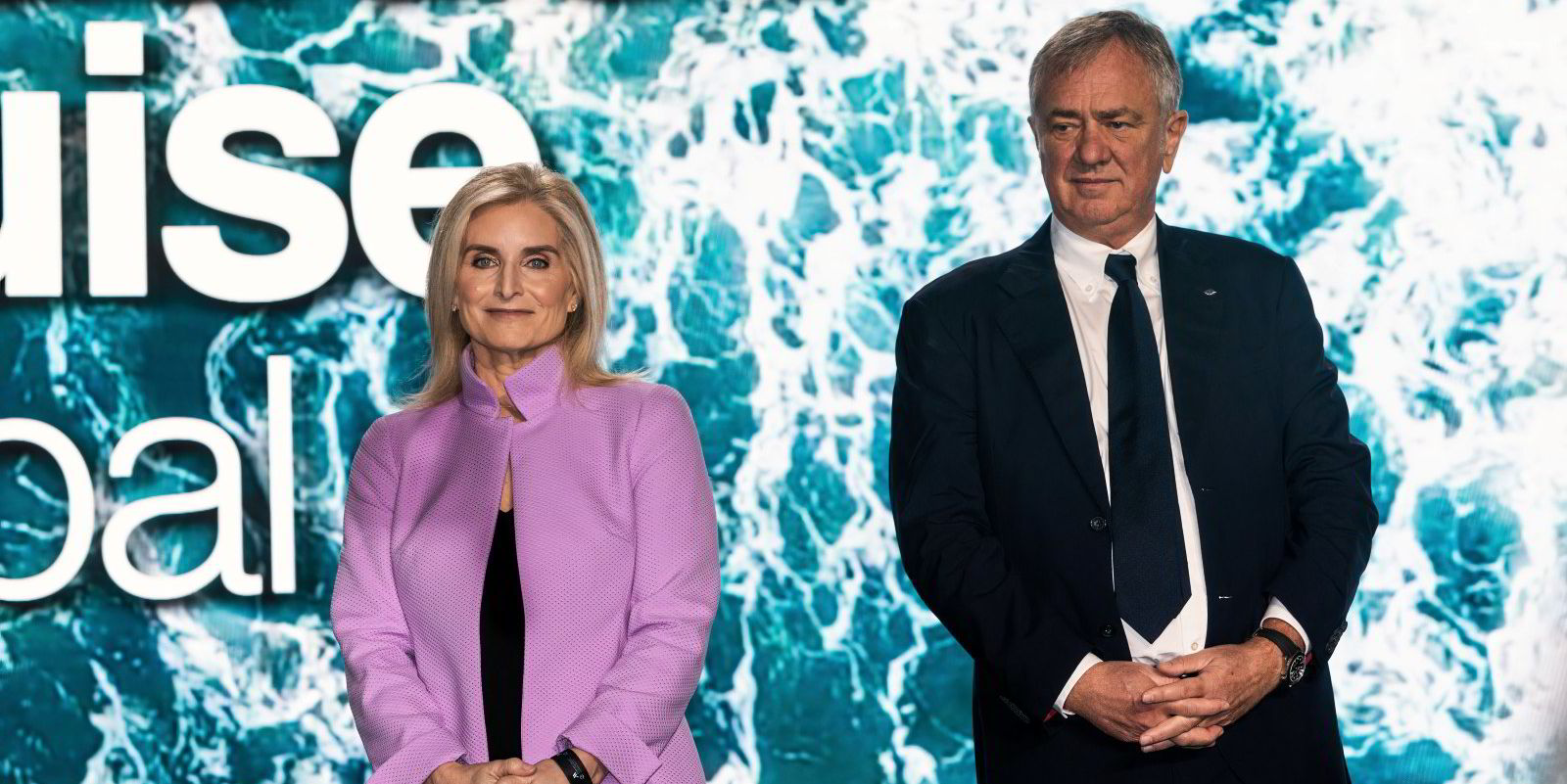
“In deploying new ships with new fuels and new propulsion systems, cruise lines are achieving real progress today, while also working towards even greater breakthroughs for tomorrow.”
Carnival chief executive Josh Weinstein said the industry is collaborating to move in the right direction when it comes to carbon emissions.
‘The biggest unknown’
But he pointed to uncertainties around alternative fuels.
“The biggest unknown is, what are we preparing for? And until we have a little bit more clarity on that, it’s going to be difficult to satisfy people with an answer,” he said.

“We get asked this all the time: ‘Are you going get to net zero?’ Yep. ‘Do you know how you’re going to get there?’ Nope. We don’t, because it doesn’t exist yet.”
He said the best thing cruise can do is plan to collaborate and make improvements every year, which he said is happening as lines have been reducing their carbon intensity.
Not everyone was happy with the central role role that greenhouse gas emissions and alternative fuels played in discussions at the event.
Norwegian Cruise Line Holdings chief executive Frank Del Rio, who is gearing up for retirement, said he does not know whether cruise will hit cruise targets in 2050 or even 2093.
“I know that the purpose of the cruise industry is to provide great vacations for customers. And I don’t think that we talk enough about it, because we’ve been carried away by this narrative about sustainability and renewables, and green and blue and IMO, and everything else,” he said.
“And I think it’s time to be more balanced. Let’s not forget about fuels. But let’s not forget what the real purpose of our businesses is.”
Del Rio said customers do care about the environment, but he questioned whether they care enough to pay for it, since cruise vacations are cheaper than many land-based vacation.
Questions over LNG
Outside the world of the convention centre, many question whether the decarbonisation efforts are moving down the right path.
Bryan Comer, marine programme lead at the nonprofit International Council on Clean Transportation, said the sector is investing in technologies that represent a step backward for reducing greenhouse gas emissions.
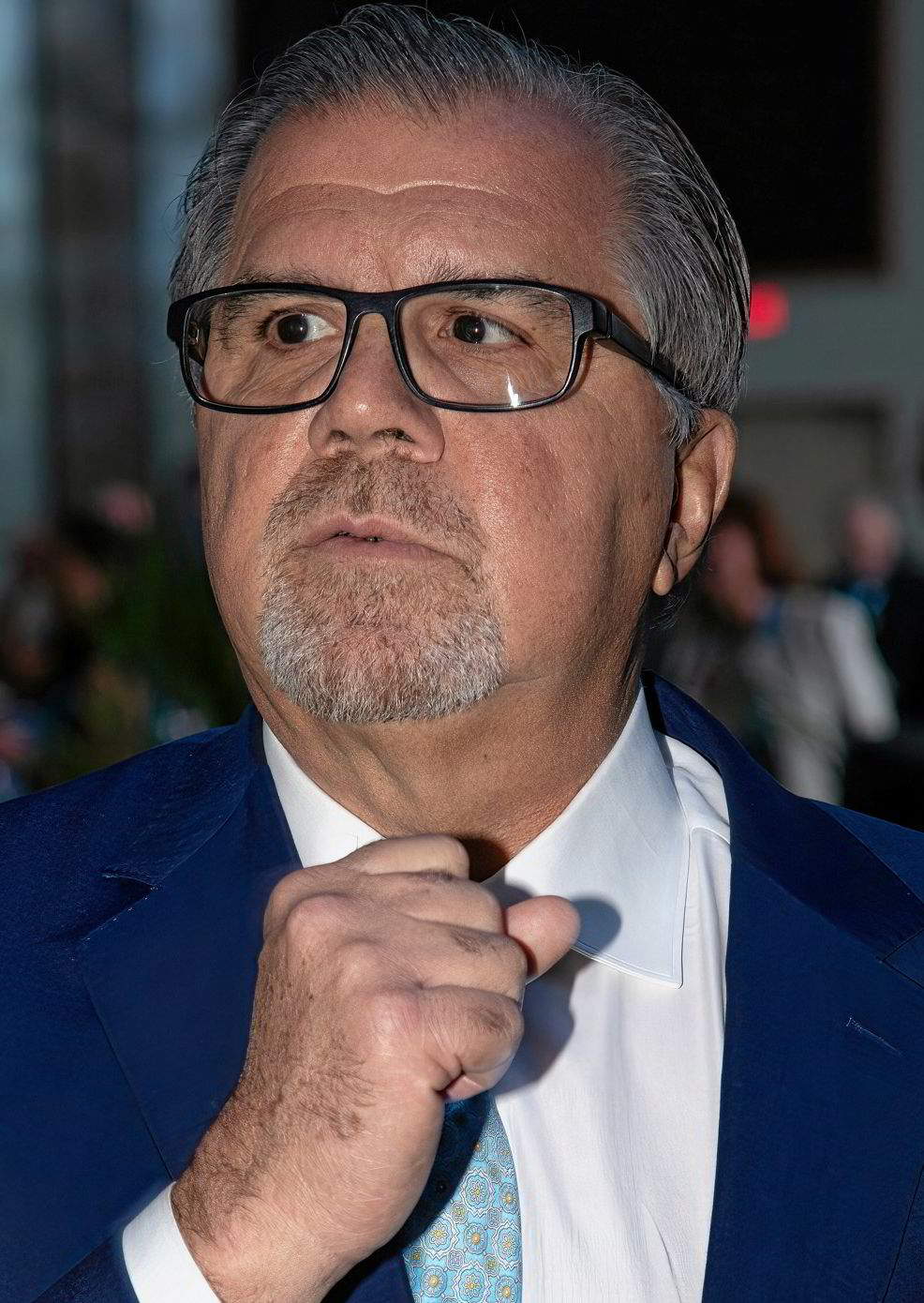
His concern is cruise’s focus on LNG as a growing alternative fuel.
While LNG does reduce carbon dioxide emissions, its primary ingredient is methane, which is a more potent greenhouse gas and leaks into the atmosphere when used in ships.
Comer said cruise companies can chose engines with low, medium and high levels of methane slip.
“And the cruise line industries all make use of this high methane emission engine,” he told TradeWinds. “And so it’s pretty much the worst way to use liquefied natural gas, because you end up losing at least three and a half per cent of it to the atmosphere.”
And even though engine makers have been making progress in reducing methane slip from ship engines, Comer said even the latest newbuildings are being constructed with engines that leak more of the gas.
He said it would be better for these ships, for now, to run on marine gas oil, a petroleum-based fuel that has lower greenhouse gas emissions, and the industry should gravitate toward methanol, an emerging alternative fuel. The industry should look to more meaningful investments in batteries and fuel cells.
But Comer also was critical of the wording of CLIA’s decarbonisation target for net zero carbon by 2050.
Carbon vs greenhouse gas
“They say ‘carbon’, and that implies carbon dioxide,” he told the podcast, noting that the focus should also be on other greenhouse gases like methane, nitrous oxide and black carbon.
“Focusing just on carbon lets them off the hook for any other emissions.”

Cruise executives defend LNG as a fuel, touting its lower CO2 footprint and highlighting the opportunity to bring in greener bio-LNG or synthetic LNG produced from renewable energy, although environmental groups say even these versions of the fuel have methane emissions problems.
Matthieu de Tugny, the president of marine and offshore at French classification society Bureau Veritas, said cruise faces a special challenge when it comes to decarbonisation: the ships use more on board power than cargo vessels.
Yet, he said, the cruise industry has been a leader in its approach to cutting carbon by reducing consumption on board and exploring new fuels and technologies.
“Even though cruise is about 3% of the global fleet worldwide, they have been pioneering in decarbonisation,” he said on the sidelines of Seatrade. “It’s a matter of fact.”
He also said LNG has been proving to cut CO2 emissions by some 25% on ships, making it a definite part of the transition, and moving into bio-LNG or e-LNG in the future will help address methane emissions concerns.
Methanol option
De Tugny also pointed to methanol as a growing option for cruise, pointing out that different fuels will work for different companies, ships and itineraries.
In cargo shipping, methanol is growing as an alternative fuel because it is easier to handle, available at ports around the world and it has a lower carbon footprint today, with the potential for greener versions of the fuel to present a zero-carbon option.
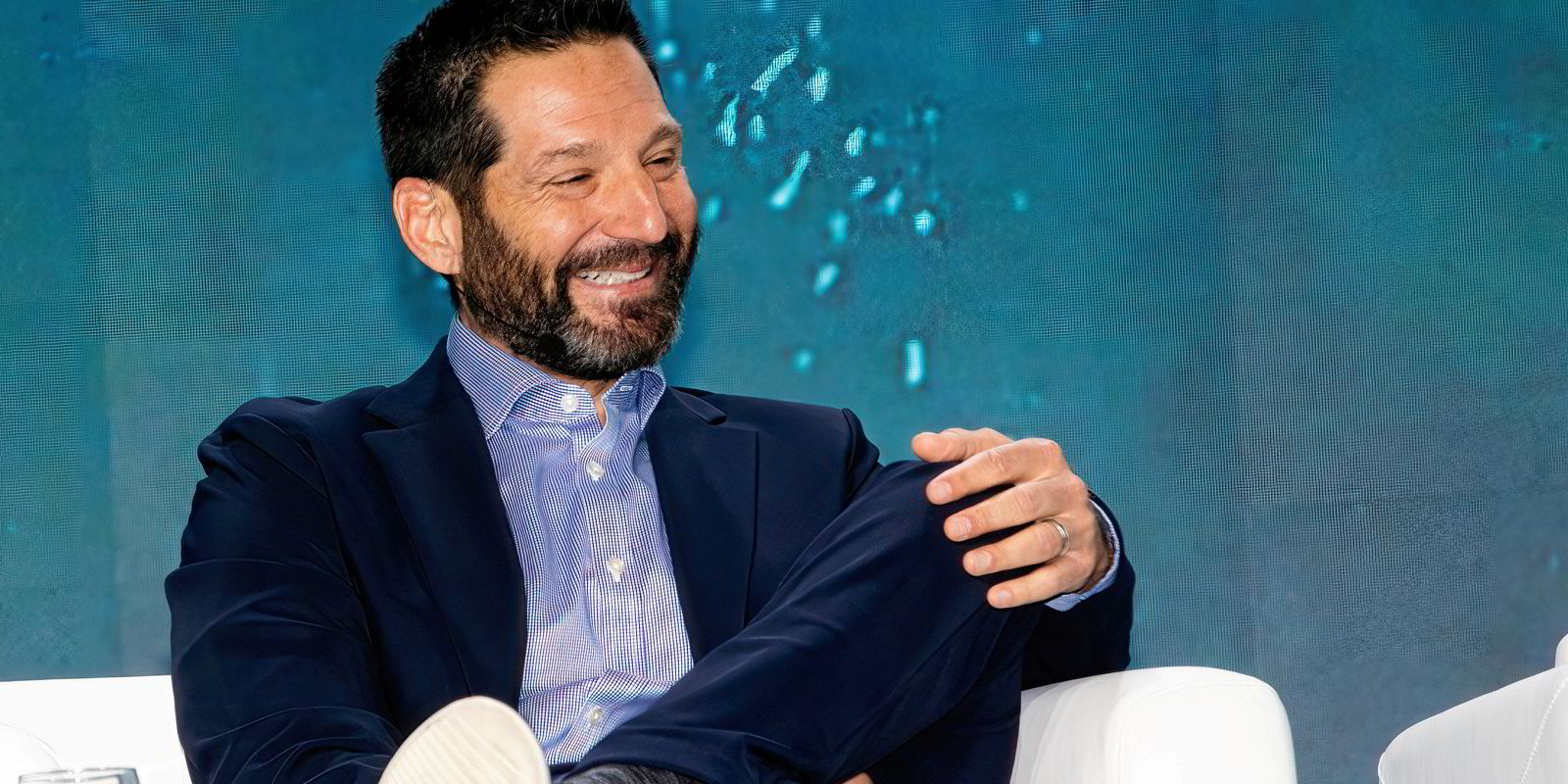
Asked whether LNG is still on the menu for Carnival’s future ship orders, chief maritime officer William Burke said the cruise industry giant is taking a pause to see what to do next. He said the company will look closely at LNG and methanol.
He said LNG is still a good option as a transitional fuel.
“If it were to be produced in a green way, then it’s completely different. Then … we can use it forever, if it’s synthetic or bio. But I think we’ll look closely at LNG in the future and methanol,” he said.
“Methanol is … almost the chemical equivalent of LNG, but it’s probably a little easier to use because you don’t need the cryogenic piece. … But I think the result is about the same.”
Read more
- Back on growth path: Cruise leaders see more than just a rebound in passenger demand
- Editor’s Selection: Dacy urges caution, Li Li confesses to graft and Union Maritime swoops
- Green Seas: ‘Much remains up in the air’ as IMO hurtles toward carbon crunch session
- Podcast: Should shipping even consider the nuclear option to slash carbon?
- Editor’s selection: Product tanker bonanza blows, Europe’s shipowners get ‘cozy’ with Russia sanctions and Evergreen bumps bonuses
